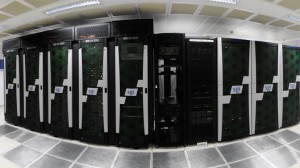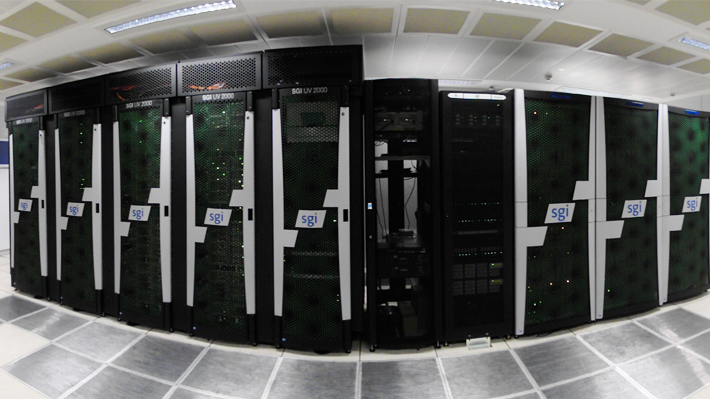 Today Cambridge University announced that COSMOS supercomputer facility is now an Intel Parallel Compute Center. As an IPCC, the COSMOS research facility will receive enhanced Intel support from its applications and engineering teams, as well as early access to future Intel Xeon Phi and other Intel products aimed at high-performance computing. IPCC status will allow COSMOS to better focus on delivering computing advances to the scientific community it serves and also highlight the efforts Intel has put into advancing high-performance computing.
Today Cambridge University announced that COSMOS supercomputer facility is now an Intel Parallel Compute Center. As an IPCC, the COSMOS research facility will receive enhanced Intel support from its applications and engineering teams, as well as early access to future Intel Xeon Phi and other Intel products aimed at high-performance computing. IPCC status will allow COSMOS to better focus on delivering computing advances to the scientific community it serves and also highlight the efforts Intel has put into advancing high-performance computing.
Switched on in 2012, the COSMOS facility is dedicated to research in cosmology, astrophysics and particle physics. To date, the facility has been used to simulate the dynamics of the early Universe and for pipelines analysing the statistics of Planck satellite maps of the cosmic microwave sky. The COSMOS supercomputer was the first very large (over 10 terabyte) single-image shared-memory system to incorporate Intel Xeon Phi coprocessors, which are behind the most power-efficient computers in the world.
Intel Parallel Computing Centres (IPCC) are universities, institutions, and labs that are leaders in their field. The centres are focusing on modernising applications to increase parallelism and scalability through optimisations that leverage cores, caches, threads, and vector capabilities of microprocessors and coprocessors.
In related news, Intel is seeking additional IPCC centers in a new RFP.




